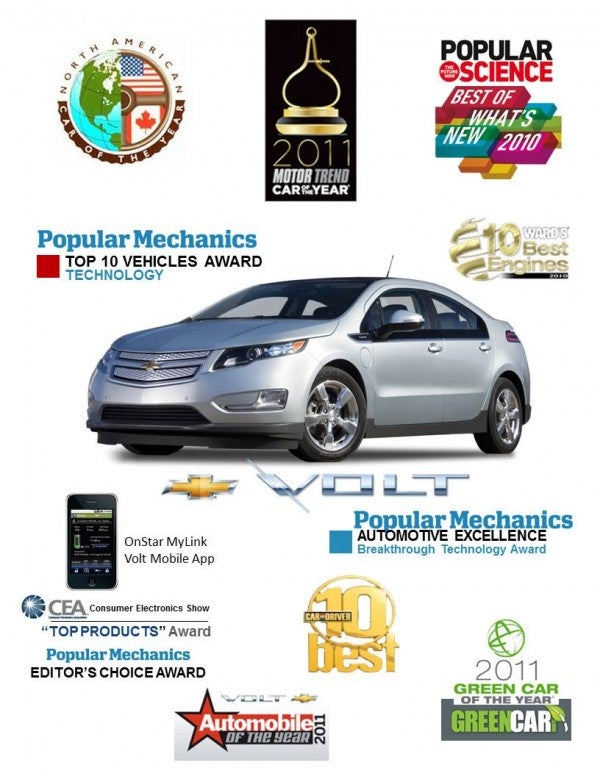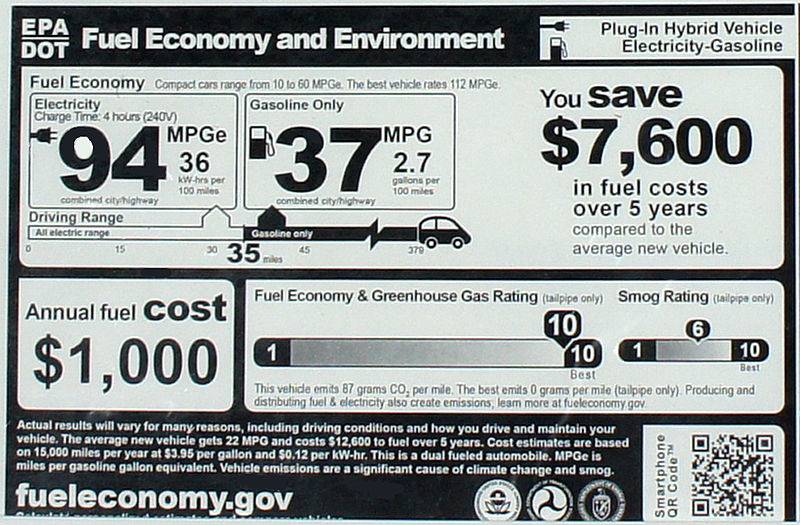Synthaholic
Diamond Member
- Jul 21, 2010
- 76,281
- 73,656
- 3,605
Living with a chevy volt. <snip>
Nice FUD-work, Nova78. What, no plagiarizing this time? Your are only good for posting a 2-year-old video, and a 2008 stock photo of some random car fire? You can do better...
How about a sizzling-hot video from a Volt Pool Party? Much more entertaining!!
[ame="http://www.youtube.com/watch?v=JE3PqOz46zQ&feature=player_embedded"]Voltchella: The Chevy Volt Pool Party - YouTube[/ame]
Or a picture of the Volt surrounded by all of the awards it's collected?

The Volt just won #1 in customer satisfaction for the second year in a row: http://www.autonews.com/apps/pbcs.d...-ranked-by-consumer-reports-as-most-loved-car
"DETROIT -- The Chevrolet Volt plug-in hybrid landed atop Consumer Reports' annual owner-satisfaction ranking for the second straight year.
Ninety-two percent of responding Volt owners in a poll of the magazine's subscribers said they definitely would buy a Volt again, tops among 240 models, the magazine said today.
Several other fuel-efficient models also scored highly, including Toyota's Camry Hybrid, Prius, and Prius C as well as Nissan's Leaf electric car.
The Volt's two-year reign "points to the continuing trend of owners' enthusiasm for cars that are fuel-efficient cars, especially as we see more and more hybrid and electric models hitting the market," Rik Paul, Consumer Reports' auto editor, said in a statement.
It's also affirmation for GM executives who've battled bad press from early soft sales, scathing criticism from opponents of green-car subsidies, and a late 2011 federal safety probe into battery fires that turned up no significant risks."
I'm sure that last paragragh resonates with you.
Good for the Volt! I'm sure the folks who can afford one are quite happy with them as is the author of the OP. But, based on the average $175k incomes of Chevy Volt buyers, and given the apparent great success of the product among these buyer, perhaps we soon won't need government subsidies to produce them and to persuade people to buy them?
$32k is not expensive for a car these days. A Honda Odyssey minivan runs close to $35k these days. How many cars are sold each year that are more expensive than $32k? A bunch. I doubt that BMW or Lexus or Acura or Mercedes or Infiniti even have a cheaper car available.
If you are currently spending $50-$100 per week for gas - as many Expedition/Tahoe/Escalade/Armada/full sized sedan owners do - that $200-$400 is a good chunk toward the monthly equity payment of a Volt.
I am seriously considering one as a replacement for my Volvo S70 T5, which is $50 per week in gas.





